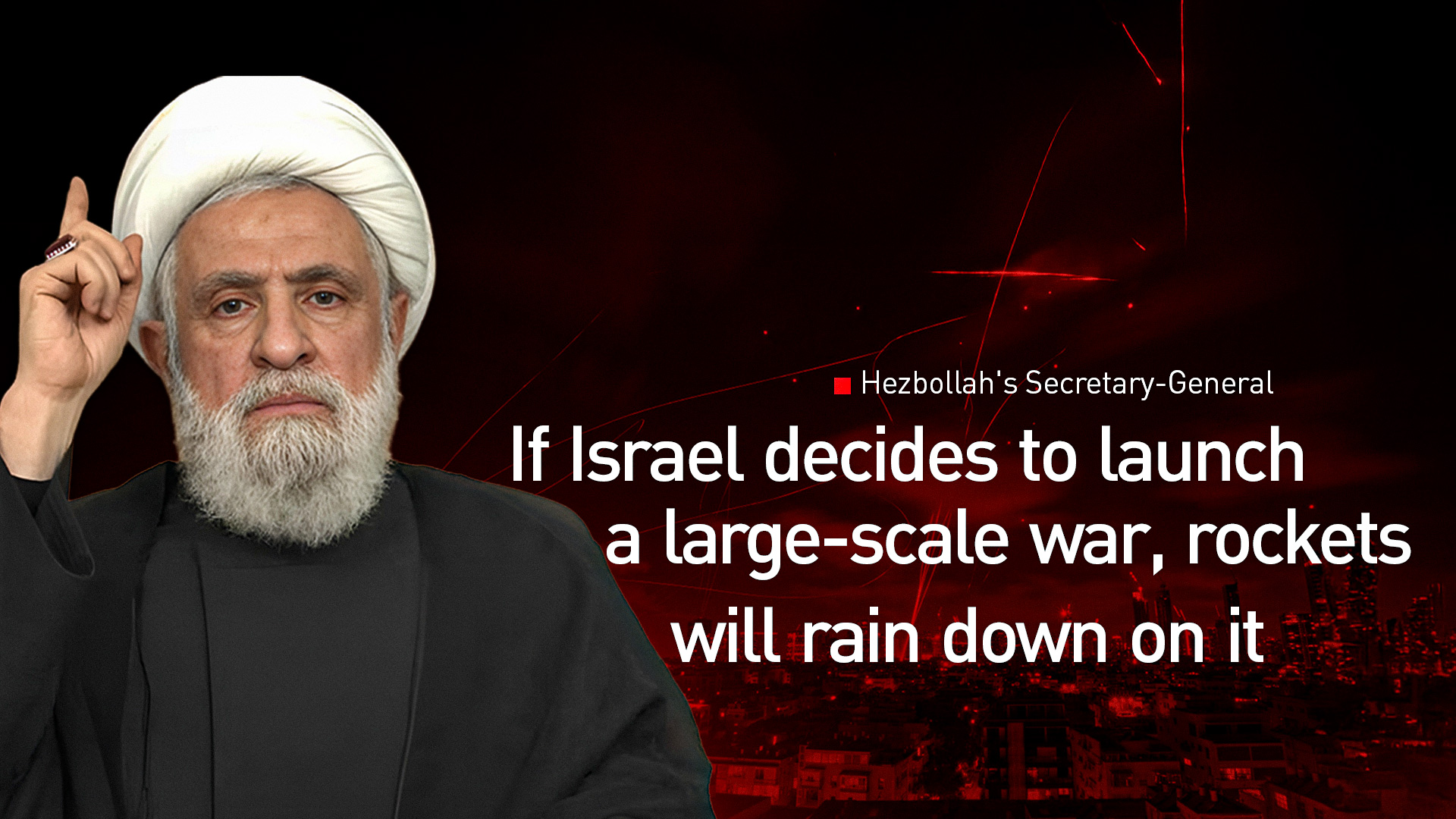Hezbollah Rejects Lebanese Government’s Push for Exclusive State Arms Control
“Our enemy is not omnipotent and has not achieved all its objectives,” Hezbollah's Secretary-General Said. “We are not defeated. If Israel decides to launch a large-scale war, rockets will rain down on it once again.”

ERBIL (Kurdistan24) – Hezbollah's Secretary-General Naim Qassem has firmly rejected the Lebanese government's recent efforts to implement exclusive control of weapons by state military and security institutions, declaring that the group will not accept any timeline for disarmament “under the shadow of Israeli aggression.” His comments come amid growing tensions between Hezbollah and Lebanese authorities over the future of its arsenal.
Qassem issued his statement in direct response to a Lebanese cabinet session convened to propose a roadmap for disarming the group. He warned that any attempt to proceed with a new agreement outside the framework of the existing understanding between Lebanon and Israel would be unacceptable.
"Israel Regrets the Agreement": Qassem Warns of Consequences
Referring to the November 27 agreement that ended a 66-day war between Israel and Hezbollah, Qassem claimed that Israel had violated the deal and was now attempting to alter its terms in its favor. “The resistance facilitated all procedures required of the state in the agreement… Israel reneged on its commitments and regretted signing the deal,” he said.
He emphasized that Lebanon’s interest lies in “restoring sovereignty and liberation,” while “Israel’s interest is to weaken Lebanon.” He accused U.S. envoy to Lebanon, Thomas Bruck, of bringing proposals “entirely in Israel’s interest,” revealing that Bruck’s demands included stripping Lebanon of its military capacity—even down to hand grenades and mortars—within 30 days.
Qassem described the American proposal as an attempt to “prevent the Lebanese army from possessing effective weapons” under the guise of safeguarding Israeli security. He added that the phased plan, starting with an Israeli withdrawal from five border points and leading to the release of prisoners within 60 to 90 days, amounts to “stripping Lebanon of its strength.”
“We categorically reject any new agreement with Israel that is not under the previous understanding between the Lebanese state and the enemy,” Qassem declared, reiterating that “any timeline proposed under the roof of Israeli aggression is unacceptable.”
He warned against Lebanon relinquishing its power while “leaving all the cards in the hands of the Israeli enemy,” stressing that the ceasefire agreement had allowed Hezbollah to maintain a credible deterrent force—a fact Israel now regretted.
Addressing the Lebanese government, Qassem asked: “According to Article Three of the ministerial statement, is abandoning the resistance and surrendering weapons to Israel the path to safeguarding sovereignty?”
He added, “The ministerial statement speaks of deterring aggressors. But where is the state that repels danger from Lebanon? Where is the defense of our borders? If you say you cannot do it, then let us maintain our capabilities and build them.”
Qassem urged the government to present a roadmap and practical steps “to deter the aggressor,” adding: “You should be focused on stopping aggression, ending occupation, reconstruction, and prisoner releases—only then can you talk about what you want.”
He criticized the shift in focus from developing a national security strategy to disarming the resistance. Despite his firm stance, Qassem emphasized Hezbollah’s commitment to dialogue, saying: “We remain committed to cooperation with the three presidents. We are keen on discussion, understanding, and cooperation—but we will not allow anyone to impose dictates on us.”
“Our enemy is not omnipotent and has not achieved all its objectives,” he added. “We are not defeated. If Israel decides to launch a large-scale war, rockets will rain down on it once again.”
Prior to the cabinet meeting, several voices within Lebanon had urged the government to take a firm stand on Hezbollah’s weaponry. The Druze Religious Council, chaired by Sheikh Sami Abi al-Muna, called on all political forces to “fortify the internal arena in the face of existential challenges,” and urged solidarity within the cabinet to implement the presidential oath, ministerial statement, and international resolutions.
As Lebanon teeters on the edge of a national security debate, the confrontation between Hezbollah and the state appears to be entering a critical phase—one that could determine the future balance of power within the country and across its southern frontier.
